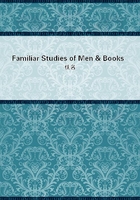
第78章
It is improbable that the Diary can have been carried on in the same single spirit in which it was begun. Pepys was not such an ass, but he must have perceived, as he went on, the extraordinary nature of the work he was producing. He was a great reader, and he knew what other books were like. It must, at least, have crossed his mind that some one might ultimately decipher the manuscript, and he himself, with all his pains and pleasures, be resuscitated in some later day; and the thought, although discouraged, must have warmed his heart. He was not such an ass, besides, but he must have been conscious of the deadly explosives, the gun-cotton and the giant powder, he was hoarding in his drawer. Let some contemporary light upon the journal, and Pepys was plunged for ever in social and political disgrace. We can trace the growth of his terrors by two facts. In 1660, while the Diary was still in its youth, he tells about it, as a matter of course, to a lieutenant in the navy; but in 1669, when it was already near an end, he could have bitten his tongue out, as the saying is, because he had let slip his secret to one so grave and friendly as Sir William Coventry. And from two other facts I think we may infer that he had entertained, even if he had not acquiesced in, the thought of a far- distant publicity. The first is of capital importance: the Diary was not destroyed. The second - that he took unusual precautions to confound the cipher in "rogueish" passages - proves, beyond question, that he was thinking of some other reader besides himself. Perhaps while his friends were admiring the "greatness of his behaviour" at the approach of death, he may have had a twinkling hope of immortality. MENS CUJUSQUE IS EST QUISQUE, said his chosen motto; and, as he had stamped his mind with every crook and foible in the pages of the Diary, he might feel that what he left behind him was indeed himself. There is perhaps no other instance so remarkable of the desire of man for publicity and an enduring name. The greatness of his life was open, yet he longed to communicate its smallness also; and, while contemporaries bowed before him, he must buttonhole posterity with the news that his periwig was once alive with nits. But this thought, although I cannot doubt he had it, was neither his first nor his deepest; it did not colour one word that he wrote; and the Diary, for as long as he kept it, remained what it was when he began, a private pleasure for himself. It was his bosom secret; it added a zest to all his pleasures; he lived in and for it, and might well write these solemn words, when he closed that confidant for ever: "And so I betake myself to that course which is almost as much as to see myself go into the grave; for which, and all the discomforts that will accompany my being blind, the good God prepare me."
A LIBERAL GENIUS.
Pepys spent part of a certain winter Sunday, when he had taken physic, composing "a song in praise of a liberal genius (such as I take my own to be) to all studies and pleasures."
The song was unsuccessful, but the Diary is, in a sense, the very song that he was seeking; and his portrait by Hales, so admirably reproduced in Mynors Bright's edition, is a confirmation of the Diary. Hales, it would appear, had known his business; and though he put his sitter to a deal of trouble, almost breaking his neck "to have the portrait full of shadows," and draping him in an Indian gown hired expressly for the purpose, he was preoccupied about no merely picturesque effects, but to portray the essence of the man.
Whether we read the picture by the Diary or the Diary by the picture, we shall at least agree that Hales was among the number of those who can "surprise the manners in the face."
Here we have a mouth pouting, moist with desires; eyes greedy, protuberant, and yet apt for weeping too; a nose great alike in character and dimensions; and altogether a most fleshly, melting countenance. The face is attractive by its promise of reciprocity. I have used the word GREEDY, but the reader must not suppose that he can change it for that closely kindred one of HUNGRY, for there is here no aspiration, no waiting for better things, but an animal joy in all that comes. It could never be the face of an artist; it is the face of a VIVEUR - kindly, pleased and pleasing, protected from excess and upheld in contentment by the shifting versatility of his desires. For a single desire is more rightly to be called a lust; but there is health in a variety, where one may balance and control another.